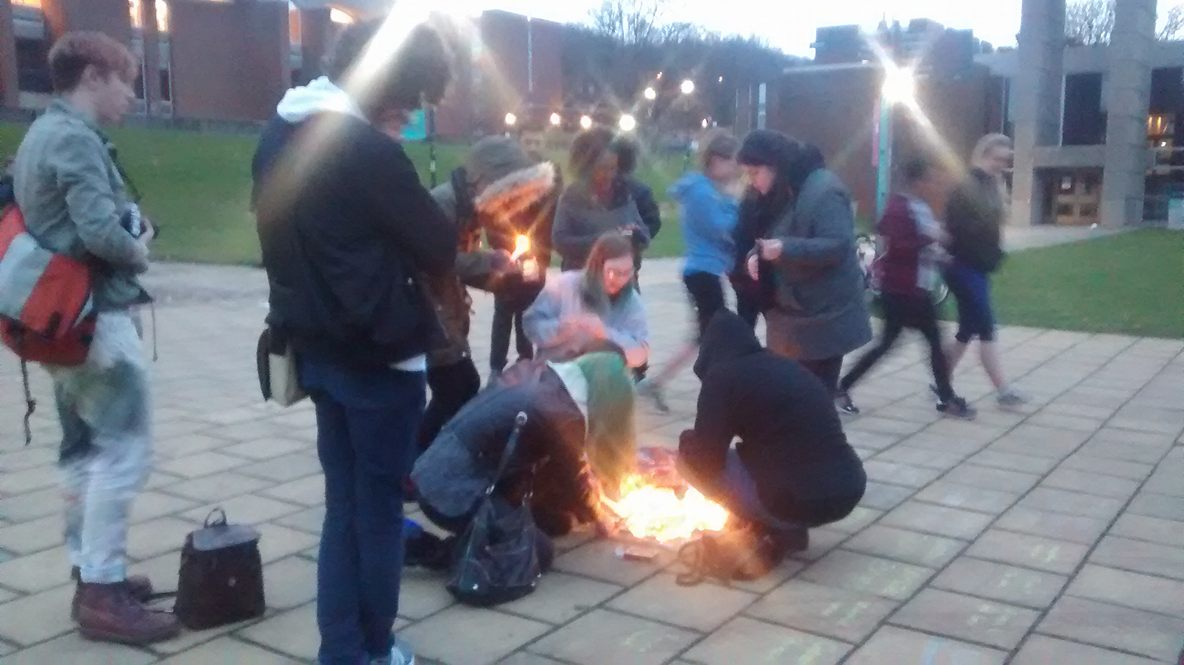Sussex’s Annual General Meeting is always good fun, despite the boring initial procedures, the confusion, and the long hours of sitting on a wooden floor (perhaps an idea to get a better venue next year, as this would also improve attendance. How about a marquee with 600 chairs and a bar?). I certainly enjoyed that Thursday, not in the least because one of the motions that I co-submitted was passed, albeit indicatively.
This article comes as a brief response to Ben Evan’s comment piece titled ‘Of polemics, ideologues and arrogance’ that appeared in last week’s Badger. I felt that some of Ben’s remarks targeted a group, or rather a movement that I am part of, and I therefore felt compelled to respond. There is no space for me here to discuss all Ben’s points, and I will stick mainly to the NUS issue.
Ben expresses his frustration with “several of the uglier traits of our otherwise nobly engaged student body”. His problem is with the way in which the NUS debate ensued and resulted in yet another call for a referendum on (dis-)affiliation. He believes that the NUS were targeted in a manner which was elitist and arrogant. According to Ben, there has been a historically poor relationship with the NUS, a culture of disengagement within USSU, and he concludes that our criticism of the national union is unjustified because we refuse “to engage the NUS in a constructive manner.” The debate at the AGM was the cry of a union that never bothers to engage yet stands on the sideline criticising – “years of engaging in polemical rants about Blairite wannabes and neo-liberalism.”
Firstly, here a problematic difference is made between what is deemed practical, constructive engagement and what is deemed ideological ranting. The thing is, Ben’s points are no less ideological. They are simply less far removed from the political mainstream within society (and the NUS), and appear therefore more realistic.
What Ben argues for is a “constructive” engagement within the NUS, like submitting motions, going to regional events, NUS training, etc. The fact is however that in the years that I have been involved Sussex has done that, but given, perhaps less so than other unions. On the other hand, Sussex has ran two candidates for influential positions over the last two years – for the position of VP education (Dan Glass, 06-07) and National Treasurer (myself, 07-08). Sussex has also co-submitted proposals and amendments in the NUS reform process, as well as to conferences. So it’s not entirely fair to say we do not engage, but perhaps not in the way that the leadership of the NUS would like Sussex to.
If we were to take more lessons from the NUS, use their contacts and training facilities, and let that bureaucratic lobby culture permeate the way we do things at Sussex, we’d certainly be on the wrong track. Imagine the Sussex Not For Sale campaign following that scenario – it would involve a load of meaningless yet glossy leaflets, endless meetings with University managers, begging them to ‘listen’, bland meetings exclusively run by SU sabbs; not the grass roots democratic student – worker movement that raised the wider issue of marketisation, not just fees, that we saw here last year. Which also got a runner-up Campaign of the Year Award, indeed, from the NUS (the irony!).
In one sense Ben makes a good point. The anti-capitalist left in NUS, of which Sussex forms an integral part, does indeed often revel in ideological rants about neo-liberalism and war, whilst the mainstream-right forces appear to play a more practical, hands-on role in directly solving students’ issues. This is problematic, but only because the left does have solutions: hands-on, and not bureaucratic PC anti-racism and anti-fascism, great events like Feminist Fightback, campaigns that have a genuine bottom-up approach that tackle wider student issues, not just fees (like Sussex Not For Sale), engagement with workers and their struggles, a genuine internationalism (understandably, the NUS is a complete joke compared to what goes on in Southern-Europe, for example), the list goes on. And all that on a budget that is a tiny fraction of NUS’s annual spending.
Now this is where Sussex’s “constructive engagement” lies. Within that movement, that recently culminated into the ‘Another Education is Possible’ conference that seeks to organise a demonstration for free education, there where the NUS falls short (and by the way, we fortunately broadly do NOT agree on bland campaign slogans like ‘Keep the Cap’). A movement that learns its lessons from what’s currently happening in Italy and Germany for example – grass roots student movements that take mass democratic control of their universities, demonstrate, engage with wider society, and win.
One final point. Ben Evans makes the point that staunch liberals love to make when referring to socialism or anti-capitalism more broadly – “a world view that died some time around when Stalin first started sending his citizens to the gulags.” Now, apart from that this in fact is an arrogant statement to make, it is incorrect. Genuine workers’ democracy got abandoned by the Stalinists well before 1929, but the world view of a democratic society organised in the interest of the people never died, and becomes more relevant as the credit crunch bites and people lose their jobs whilst national treasuries get raped to fill the pockets of the few. Top-up fees and marketisation are a result of this situation. An effective resistance movement starts not from within the NUS, but from the kind of activism that Sussex is famous for, whilst remaining critical, open, self-reflexive and improving. It is a good thing that we sent out another signal to the NUS by way of referendum – now let’s continue to show that there is an alternative.



